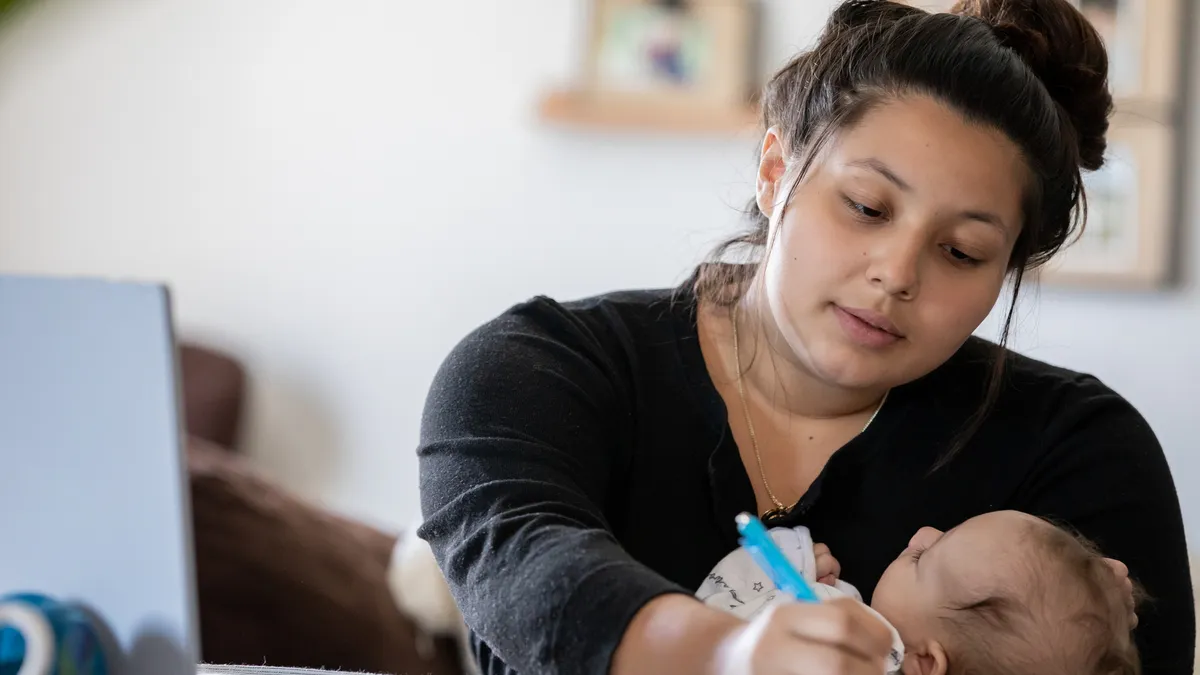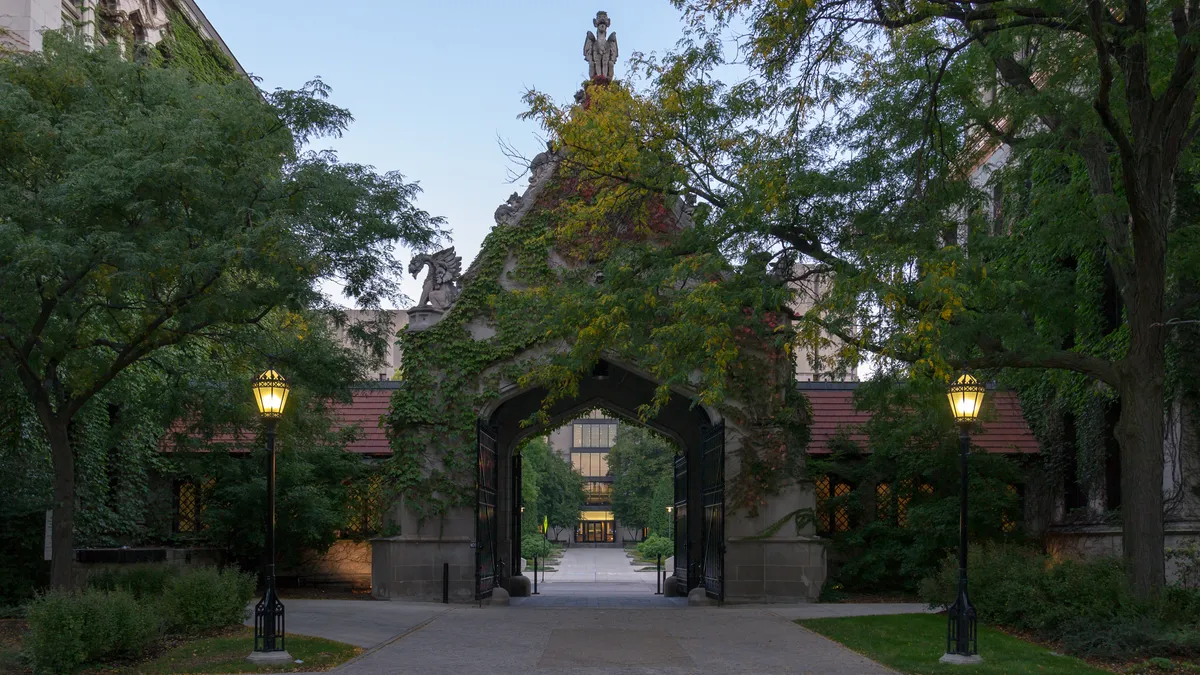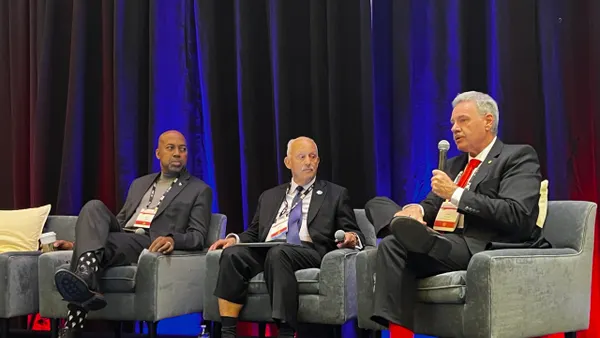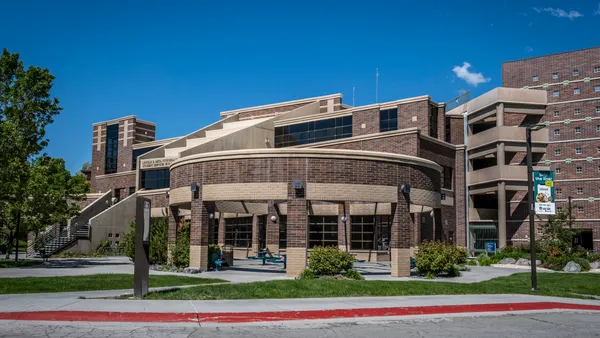Dive Brief:
- More than half of parenting students at community colleges, 56%, said they enrolled to change careers, according to a report released Wednesday by the Center for Community College Student Engagement. That's compared to 33% of their nonparent peers.
- But almost three-quarters of parenting students, 71%, said their caregiving duties were somewhat-to-very likely to cause them to withdraw from classes or drop out of college altogether, the report said.
- CCCSE advised college leaders to better understand the motivations and needs of parenting students to offer them personalized support services, such as flexible class times, recorded lectures and career counseling services.
Dive Insight:
CCCSE, a research group based at the University of Texas at Austin, collected data from students at 164 community colleges in 2024. For the survey, a parenting student is defined as someone who reported having one or more children living with them and depending on them for care.
The students in the sample are more likely to be women and be older, two groups that CCSEE has historically found to be “more engaged in their educational experiences,” the report said. But the group also disproportionately included those who face increased hurdles to completing college.
Among parenting students, 43% reported working 30 hours or more per week, compared to 26% of their nonparent peers, the report found. And 84% of parenting students are nontraditional students — usually considered those who are at least 25 years old — compared to 26% of nonparent students.
Community colleges are increasingly examining their role in supporting students beyond the classroom. Parenting students, in particular, enter college with "higher rates of financial insecurity and all the residual burdens that come with not having adequate resources," the report said.
Yet CCCSE's report found a gap in what parenting students need and what campus resources they access.
According to data from 127 community colleges, almost a quarter of parents, 23%, reported food insecurity, but only 10% said they had received help from their colleges in the past month. A similar share of parents, 22%, reported housing insecurity, but just 5% said their college helped them "maintain secure and affordable housing" in the previous year.
But in many cases, more common student services are being underused.
Among parenting students, 88% reported never using job placement assistance and 60% never using career counseling services — despite the majority of them hoping to make a career change. Those gaps could indicate colleges need to better promote these services and ensure they are accessible to parenting students.
The report advised student-facing staff to proactively reach out to parenting students throughout the semester and create an all-in-one campus and community resource guide for them.
Faculty can help by mentioning campus resources in their syllabi and creating flexible class attendance and assignment policies, the report said. To that end, recording lectures and offering alternative assignments can help parenting students experiencing family emergencies.
Community college presidents can audit their institution's policies and practices for potential hurdles for parenting students and create a plan to increase their persistence and completion rates. College presidents could also establish partnerships with local daycares to promote affordable childcare options close to campus.
Working with instructors, senior leaders could establish a range of class times, such as evening, weekend and online time slots.
CCCSE researchers profiled a handful of colleges that have successfully launched programs for parenting students, like Madison College in Wisconsin.
In 2021, Madison identified that 42% of its students were raising children. The community college has since begun tracking student-parent data in its student information system and building a campuswide support system of wraparound services.
In January, Madison plans to open an early learning center, where parenting students can enroll their young children and childhood education students can gain career experience.
In Kentucky, Maysville Community and Technical College partnered with the state's health and family services department to provide low-income parent students with academic and career support.
The program, known as Ready To Work, allows eligible students to work on- or off-campus jobs with flexible hours — without jeopardizing their access to public benefits. RTW also provides parenting students with mentoring and help navigating challenges like childcare and transportation.














